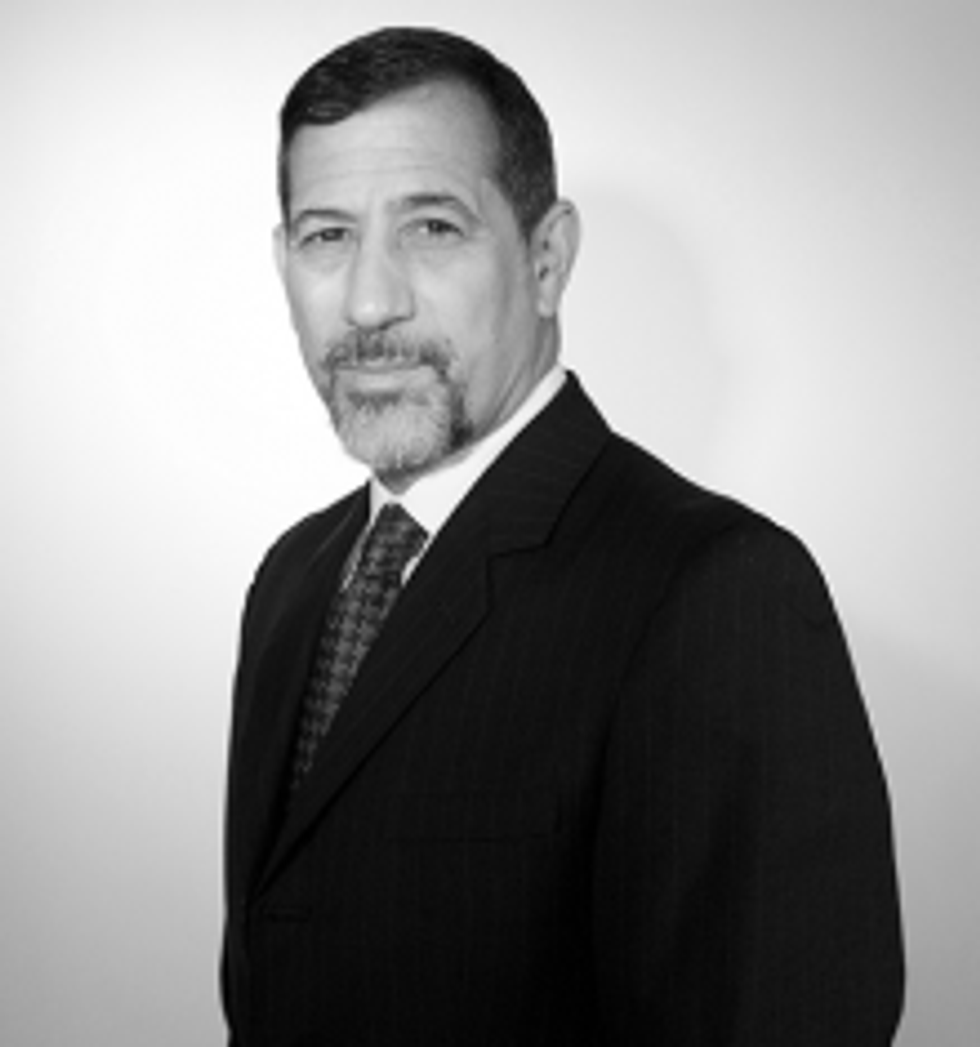ISIS has claimed responsibility for Sunday’s attack at a cathedral in the Philippines that left at least 21 people dead and scores injured. Earlier this month, ISIS claimed responsibility for an attack in Syria that targeted and killed four Americans, one of them a Green Beret.
Al-Shabab, the terrorist group that has pledged allegiance to Al Qaeda, claimed responsibility for a January 15 attack on an upscale hotel complex in Nairobi. At least 20 people were killed.
More broadly in Africa, the African Centre for the Study and Research on Terrorism (ACSRT) has reported 614 terrorism-related deaths in the first two weeks of this year alone.
All this week, The Cipher Brief is presenting a series of expert views on the terrorist threat. We’ll look at: which organizations are most likely to pose the largest threat to the U.S. both at home and abroad; we’ll talk about strategies to deny terrorist safe havens - effective breeding grounds where organizations exploit weak central governments to regain organizational strength; how special operations forces have been used to address the terrorist threat and how they might be used in the future; and how the introduction of off-the-shelf technology is enabling the next generation terrorist.
You will read more from a wide-range of counterterrorism experts throughout the week. Today we focus on the big picture and what’s top of mind for these Cipher Brief experts.
'Terrorist Organizations Posing the Most Significant Threat to the U.S. Homeland'
Nicholas Rasmussen, Former Director, NCTC

"The most significant international terrorist threat to the U.S. both at home and abroad continues to come from ISIS and al-Qaeda, perhaps just as importantly, from the large number of followers, believers and adherents around the world that still maintain allegiance or an ideological connection to these two groups."
Bruce Hoffman, Counterterrorism Expert and Georgetown Professor
"Certainly ISIS has been knocked off balance by the loss of this caliphate, the destruction of its state and it's battlefield reversals, but I think it's resiliency was shown by the administration itself in the new national counter terrorism strategy that the White House released last September, which describes ISIS as defeated, but at the same time also stated that nonetheless, ISIS still maintains eight branches scattered throughout the world in some two dozen active networks, which suggests that it is still a threat, a less robust one."
John Bennett, Former Director, CIA's National Clandestine Service
"Since the 1998 African Embassy attacks, and certainly since 9/11, our focus has been on Sunni extremist groups such as AQ and ISIS. While that threat still exists I believe the next big threat to the homeland could come from Hizbollah or other Iranian proxy groups as our relations with Iran become more confrontational. Should we ever strike a target in Iran, or perhaps even if the Israelis do it, I would be very concerned about a well planned and resourced asymmetric attack on the homeland sponsored by Iran."
Mitch Silber, Former Director of Analysis, NYPD
"Hezbollah is at the top of my list in terms of global capability. The question for 2019 is whether the U.S. v. Iranian rivalry will heat up and whether Iran will seek to use its proxy forces to deliver an asymmetric attack against the U.S. or American interests abroad. Next would be ISIS. Though the Islamic State's external operations arm seems to have gone dormant in the wake of its loss of territory, the intent is clearly still there to hit the West and the U.S. and many returning foreign fighters have returned to Europe with skills and intent who can be remotely managed."
'Emerging Terrorist Threats'
Nicholas Rasmussen, Former Director, NCTC

"Terrorism analysts have long focused on the potential cyber capability of terrorist groups and yet this remains an area of largely untapped potential for groups like ISIS and al-Qaeda. I still cannot explain to my own satisfaction why terrorist groups, or individual terrorists, have not succeeded in carrying out a truly damaging or destructive cyber attack on (for example) critical infrastructure in a targeted country. I suspect that at some point in the future we will be confronted by this reality. Also, having seen state actors like Russia achieve success by manipulating the information environment in western democracies, one suspects that some number of forward-thinking terrorists are out there somewhere thinking about how best to weaponize information in support of their extremist objectives."
John Bennett, Former Director, CIA's National Clandestine Service
"I am frankly surprised that we have not yet seen an attack on a "soft target" in the homeland. Malls, movie theaters and restaurants have minimal security when compared to many other places in the world. We have seen two attacks on malls in Nairobi and attacks on public venues such as concerts, cafes and marketed in Europe. I think it is just a matter of time and then we will turn our malls into controlled access venues like airports."
Mitch Silber, Former Director of Analysis, NYPD
"Though not a group in the traditional sense of the word, Extreme Right Wing (XRW) violence at home is something that needs more attention from the IC and law enforcement. The threat from XRW in the U.K. is now almost on par with jihadist threats and in the wake of the massacre in Pittsburgh last October, the U.S. would be naive and negligent to ignore Neo-Nazi, White Supremacists in the homeland, who operate and view themselves as a leaderless resistance movement."
Bruce Hoffman, Counterterrorism Expert and Georgetown Professor
"I think in the realm that we may have a Shia foreign fighter problem, much like over the past 30 years, we've had a Sunni foreign fighter, or Salafi-Jihadi foreign fighter problem because of course, Shia from Yemen, from the Gulf, from Africa, certainly from Pakistan, from Afghanistan have now gone to Syria, have been trained by the Iranian revolutionary guards, by Hezbollah have acquitted themselves well in battle, and eventually they're going to go home too."
'Safe Havens: Terrorist Breeding Grounds'
Mitch Silber, Former Director of Analysis, NYPD
"Weak central governments, safe havens and civil wars are some of the elements that provide the fertile ground for terrorist groups to grow and build their capabilities. Whether it is Yemen, Somalia, Syria or Afghanistan, to some degree the problems and solutions are the same. Anything that the U.S. can do to strengthen local governments, end civil wars while simultaneously building government capacity to control their own territory can help mitigate the situations."
Bruce Hoffman, Counterterrorism Expert and Georgetown Professor
"Taking the pressure off of them at a critical moment, which I have to say is not something specific to the Trump administration. I would say, since the war on terrorism began, that's been, unfortunately, I think a corrosive feature of our counter terrorism strategy is that we precipitously declare victory and ease up on the pressure when these groups are indeed on the verge of collapse when they have suffered enormous losses. But our failure in the past to kill them off has not only enabled them to survive, but as we saw with the emergence of ISIS has enabled even more dangerous splinter groups to emerge, so I would argue we're in a very similar situation now."
'Will Terrorism Ever Be Defeated?'
Bruce Hoffman, Counterterrorism Expert and Georgetown Professor
"We'd like to think that most phenomena in the world, terrorism is linear, but it's not, and it's precisely that capacity to surprise or the shock that gives terrorists that brief life as a terrorist organization. So, we shouldn't be misled by lulls in terrorist activity and become overly complacent because even a temporary lack of capability is not necessarily reflective of an absence of intent. And that intent over time can recreate that capability."
John Bennett, Former Director, CIA's National Clandestine Service
"Suffice it to say we may think the fight is over but they do not. When the next significant attack on the homeland occurs people will not say to the IC, FBI and DoD "Well ,you have done a great job protecting us for the past 17 years," but rather they will ask "How could this happen again?"
Read detailed interviews with each of these experts all this week in The Cipher Brief. Have a perspective you’d like to contribute? Leave a comment below, or email us at Editor@thecipherbrief.com

















